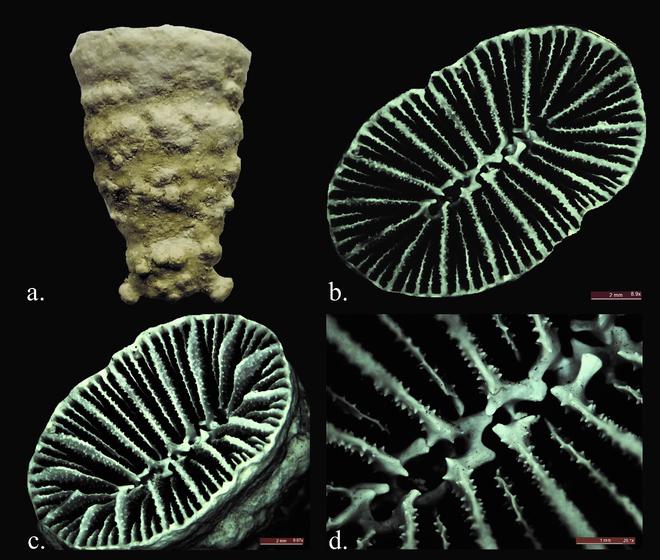Scientists have recorded four species of azooxanthellate corals for the first time from Indian waters. These new corals were found from the waters of Andaman and Nicobar Islands. Azooxanthellate corals are a group of corals that do not contain zooxanthellae and derive nourishment not from the sun but from capturing different forms of plankton. These groups of corals are deep-sea representatives, with the majority of species reporting from between 200 m to 1000 m. Their occurrences are also reported from shallow coastal waters.
Zooxanthellate corals, meanwhile, are restricted to shallow waters.
The details of the new records have been published in Thalassas: An International Journal of Marine Sciences in a paper titled Zoogeographic Range Extension of Four Species of Flabellid Corals Under the Genus Truncatoflabellum (Scleractinian: Flabellidae) From Indian Waters.

Tamal Mondal, the Zoological Survey of India (ZSI) scientist behind these new records, said that all the four groups of corals are from the same family Flabellidae.
Truncatoflabellum crassum (Milne Edwards and Haime, 1848), T. incrustatum (Cairns, 1989), T. aculeatum (Milne Edwards and Haime, 1848), and T. irregulare (Semper, 1872) under the family Flabellidae were previously found from Japan to the Philippines and Australian waters while only T. crassum was reported within the range of Indo-West Pacific distribution including the Gulf of Aden and the Persian Gulf.
Mr. Mondal said that azooxanthellate corals are a group of hard corals and the four new records are not only solitary but have a highly compressed skeletal structure.
“The most studies of hard corals in India have been concentrated on reef-building corals while much is not known about non-reef-building corals. These new records enhance our knowledge about non-reef-building, solitary corals,” he added.
Dhriti Banerjee, director of ZSI, said that coral reefs are one of the most productive, sustainable and pristine ecosystems of the world’s oceans, especially in shallow coastal waters. “These habitats contribute several services associated with human needs and existence. Hard corals are the prime and intrinsic part of the coral reef ecosystem.”
“ZSI has given special emphasis on the exploration of the coastal and marine biodiversity of India in recent times and come out with several new discoveries and ecological findings with utmost importance,” Ms. Banerjee said. The presently reported four species of solitary stony corals enhance the national database of biological resources of India and also define the expansion of scope to explore these unexplored and non-reef building corals, the ZSI director said.
There are about 570 species of hard corals found in India and almost 90% of them are found in the waters surrounding Andaman and Nicobar Islands. The pristine and oldest ecosystem of corals share less than 1% of the earth’s surface but they provide a home to nearly 25% of marine life.







